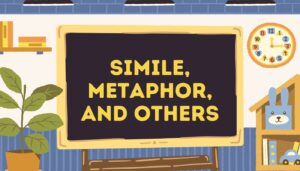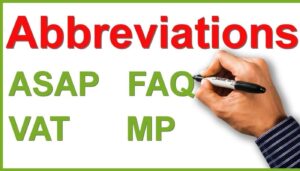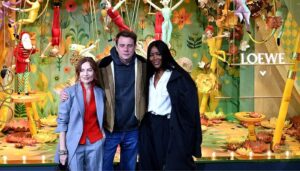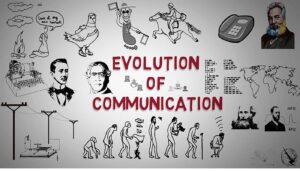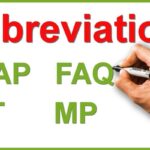Have you ever found yourself searching for the perfect word to describe something, only to come up short? Whether you’re writing a report, crafting a speech, or simply trying to express yourself more clearly, the right adjective can make all the difference.
Adjectives help to bring our descriptions to life, providing richer, more vivid details that engage the listener or reader. In this article, we’ll explore 30 powerful adjectives that begin with the letter “D.” These words are not only useful but can add depth and nuance to your communication.
Why Adjectives Matter
Imagine describing a sunset without using words like “vibrant,” “majestic,” or “peaceful.” Without adjectives, our language would be bland, and our stories would lack the texture that makes them engaging. Adjectives shape how we perceive the world around us they bring color, emotion, and context to otherwise plain nouns.
Learning new adjectives and understanding their meanings can enhance your ability to articulate thoughts and ideas. In this list, you’ll find adjectives that help describe emotions, physical characteristics, behaviors, and even abstract qualities.
So whether you’re aiming to sound more articulate or simply wanting to spice up your vocabulary, here’s a list of 30 adjectives starting with “D” to get you started!
Describing Personality and Emotions
Adjectives are a powerful tool for conveying feelings and emotions. Whether you’re describing someone’s mood or the nature of a situation, these “D” adjectives can help you paint a more detailed picture.
- Daring – Willing to take risks or face challenges.
- Diligent – Showing persistence and hard work in achieving goals.
- Dynamic – Full of energy and new ideas, constantly changing or progressing.
- Decisive – Ability to make decisions quickly and confidently.
- Disgruntled – Feeling dissatisfied or upset, often due to unfair treatment.
- Delightful – Bringing joy or pleasure; highly enjoyable.
- Discreet – Showing caution and care in speech or behavior to avoid offense.
- Defiant – Boldly resistant or challenging authority.
- Distraught – Deeply agitated or upset due to distress.
- Detached – Emotionally disconnected or uninvolved.
Real-World Example:
A manager could describe an employee as “diligent” when they consistently complete tasks on time and demonstrate attention to detail.
On the other hand, a situation where a team is uncertain and struggles to make decisions might call for someone who is “decisive.”
Describing Physical Characteristics
Adjectives starting with “D” can also help us describe someone’s appearance, health, or the physical traits of objects.
- Dazzling – Extremely impressive or beautiful, often catching the eye.
- Diminutive – Small or tiny in size, often referring to a person or object.
- Drab – Lacking color, brightness, or interest; dull.
- Dim – Not bright, lacking in light.
- Dashing – Stylish, attractive, and charming in appearance.
- Deflated – Lacking air, typically referring to something that has been deflated physically.
- Disheveled – Untidy, messy, or in disarray, often used to describe someone’s appearance.
- Doughy – Soft and somewhat pale, often used to describe a person’s skin or a physical texture.
Real-World Example:
You might describe a friend as “dazzling” when they wear a stunning outfit that captures attention at an event.
On the other hand, a colleague who looks tired and unkempt after a long day of work might be described as “disheveled.”
Describing Actions and Behavior

When describing actions, these “D” adjectives can give depth to how someone behaves or performs.
- Dutiful – Showing a strong sense of responsibility and duty.
- Deceptive – Misleading or intended to deceive.
- Domineering – Overbearing, inclined to control or dominate others.
- Dramatic – Characterized by exaggerated, emotional behavior.
- Docile – Easily taught or controlled; submissive.
- Disruptive – Interrupting or causing disturbance in a situation or environment.
- Discerning – Having or showing good judgment and insight.
- Defensive – Protecting oneself from perceived threats or criticism.
- Deliberate – Done with careful thought and planning; intentional.
- Distracting – Causing someone to lose focus or attention.
Real-World Example:
A colleague who always follows instructions and completes their tasks without complaint could be described as “dutiful.”
In contrast, a person who often challenges others and pushes their opinions could be labeled “domineering.”
Describing Situations or Ideas
Finally, adjectives can help us describe situations, ideas, or experiences, giving them more clarity or depth.
- Distinguished – Well-known and respected for achievements or qualities.
- Dubious – Doubtful or uncertain about something, often implying suspicion.
- Dismal – Depressing, gloomy, or causing a feeling of hopelessness.
- Decayed – Decomposed, rotted, or in poor condition due to age or neglect.
- Dazzling – Impressively beautiful, often leaving one in awe.
- Dreary – Unpleasantly dull, bleak, or depressing.
- Dynamic – Constantly changing, lively, and full of energy.
- Doomed – Certain to fail or end in a bad way.
Real-World Example:
If you’re reflecting on a moment that left you inspired and energized, you might describe the experience as “dazzling.”
On the other hand, a rainy, overcast day with little activity could be described as “dreary.”
Describing Personality Traits and Emotions
Understanding the nuances of people’s personalities and emotions is essential in both personal and professional settings. These adjectives will help you convey the subtleties of human nature.
- Dramatic – Highly emotional and intense in behavior or expression.
- Doubtful – Lacking certainty or confidence about something.
- Diplomatic – Skillful in managing sensitive situations and maintaining good relations.
- Dominant – Exercising control or influence over others.
- Daring – Willing to take bold risks.
- Delusional – Holding beliefs that are not based on reality.
- Discreet – Showing careful consideration and tact, especially in delicate matters.
- Dependent – Relying on others for support or guidance.
- Disillusioned – Losing faith or trust, often due to disappointment.
- Distressed – Experiencing anxiety, sorrow, or pain.
Real-World Example:
A colleague who is always calm and skilled in handling difficult situations might be described as “diplomatic.”
On the other hand, someone who tends to exaggerate emotions and situations for attention may be labeled “dramatic.”
Describing Appearance and Physical Traits
Adjectives describing physical traits allow you to vividly paint a picture of people or objects. These words can highlight distinctive features or overall impressions.
- Dapper – Neat and stylish in appearance.
- Diminutive – Small in size, often referring to someone’s stature.
- Dusty – Covered with dust, often used to describe old or neglected things.
- Dark – Having little light or color; can describe both physical features and atmosphere.
- Droopy – Hanging or sagging, often referring to a person’s posture or appearance.
- Dusky – Dark in color, often used for describing shades or tones.
- Drab – Lacking brightness, color, or interest; dull and monotonous.
- Doughy – Soft, round, and often pale, describing both texture and appearance.
- Disheveled – Untidy or messy, often used to describe someone’s hair or clothing.
- Dazzling – Extremely bright or beautiful, often used to describe something visually stunning.
Real-World Example:
If someone arrives at a meeting looking perfectly groomed, you might describe them as “dapper.” Meanwhile, a tired person with unkempt hair after a long day might be seen as “disheveled.”
Describing Behavior and Actions
When discussing actions or behaviors, certain adjectives convey the manner or tone in which something is done. Here are some useful adjectives to describe behavior.
- Deceptive – Intended to mislead or hide the truth.
- Decisive – Demonstrating quick and effective decision-making.
- Deliberate – Done with careful thought and consideration.
- Defiant – Openly resisting authority or control.
- Disruptive – Causing interruptions or disturbances, especially in a group or system.
- Defensive – Protecting oneself from criticism or attack.
- Dutiful – Showing a sense of responsibility and commitment to tasks.
- Distracting – Taking attention away from something or someone.
- Deferential – Showing respect and yielding to others.
- Diligent – Hardworking and persistent in completing tasks.
Real-World Example:
A manager who is always careful about making decisions after considering all options would be described as “deliberate.” In contrast, a team member who challenges every instruction might be called “defiant.”
Describing Situations, Places, and Events

The right adjectives can breathe life into descriptions of places, events, or situations, making them feel more tangible and real.
- Dreary – Lacking brightness or cheerfulness; gloomy and dull.
- Delightful – Full of joy, causing happiness or satisfaction.
- Dynamic – Energetic, constantly changing or evolving.
- Dismal – Causing sadness, despair, or hopelessness.
- Distinguished – Notable for excellence or achievement.
- Dull – Lacking excitement or interest; boring.
- Disastrous – Causing great damage, failure, or suffering.
- Damp – Slightly wet, often uncomfortable or unpleasant.
- Dank – Damp, often with an unpleasantly musty smell.
- Dazzling – Extremely bright, beautiful, or impressive.
Real-World Example:
An event that exceeds expectations, leaving everyone excited, might be described as “dazzling.” On the other hand, a day with constant rain and low energy could be described as “dreary.”
Describing Ideas, Concepts, and Abstract Qualities
Adjectives in this category help to give shape and clarity to intangible things like concepts, feelings, or ideas.
- Dubious – Doubtful, uncertain, or suspicious.
- Deceptive – Misleading or giving a false impression.
- Decayed – Deteriorating or rotting, often used to describe the quality of something over time.
- Detached – Emotionally removed or uninvolved.
- Dogged – Determined, showing persistence despite difficulties.
- Dramatic – Exaggerated, often implying a sense of urgency or importance.
- Disjointed – Lacking coherence or connection, often used to describe ideas or speech.
- Deficient – Lacking in quality or quantity.
- Dissonant – Unpleasantly harsh, often used to describe sounds or ideas that clash.
- Distorted – Changed from the original or true form, often to mislead or confuse.
Real-World Example:
A proposal with conflicting ideas or one that lacks clear structure might be called “disjointed.” On the other hand, a vision that is bold and inspiring could be described as “dramatic.”
Describing Qualities of Things
These adjectives describe the inherent qualities of objects, materials, or environments.
- Durable – Able to withstand wear, pressure, or damage.
- Decadent – Luxuriously self-indulgent, often to the point of excess.
- Defective – Imperfect or flawed in some way.
- Diminishing – Gradually becoming less in size, importance, or strength.
- Dismaying – Causing feelings of anxiety, worry, or disappointment.
- Distinct – Clearly different or separate from others.
- Delicate – Fragile or requiring careful handling.
- Darkened – Made darker, often referring to a space or atmosphere.
- Dwindling – Gradually decreasing in size, number, or strength.
- Divisive – Causing disagreement or division among people.
Real-World Example:
An item that can endure heavy use without breaking down would be “durable.” Meanwhile, a piece of artwork with subtle, fine details may be described as “delicate.”
Describing Personality and Emotions
Understanding personality traits and emotions can help you relate better to others, whether in conversation or writing. Here are some adjectives that describe people’s inner qualities and feelings:
- Dauntless – Fearless, showing determination despite challenges.
- Discreet – Showing tact and careful consideration in actions and speech.
- Depressed – Feeling sad, down, or in a state of low spirits.
- Dogmatic – Strongly opinionated, often without consideration of others’ views.
- Dull – Lacking excitement, energy, or interest, especially in a person’s behavior.
- Doubtful – Unsure or skeptical about something.
- Discontented – Feeling dissatisfied or unhappy with a situation.
- Despondent – Feeling hopeless or in low spirits, often due to disappointment.
- Defensive – Protecting oneself from criticism or attack, often overreacting.
- Detached – Emotionally uninvolved or aloof, not engaging with others.
Real-World Example:
A friend who remains calm under pressure might be described as “dauntless,” while a person who is always arguing their point without compromise may be labeled “dogmatic.”
Describing Appearance and Physical Features
When it comes to describing physical attributes, the right adjective can help you create a vivid image. Use these adjectives to describe people, objects, or places more effectively.
- Dapper – Neatly dressed, stylish, and elegant.
- Dilapidated – In a state of disrepair or ruin, often referring to buildings or structures.
- Dappled – Marked with spots or patches of different colors or shades.
- Dashing – Attractive, elegant, or charming in appearance.
- Doughy – Soft, round, and often slightly pale, usually used to describe a texture or appearance.
- Disguised – Hidden or altered to conceal one’s true appearance.
- Dented – Having an indentation or mark, typically from a blow or impact.
- Dizzying – Causing a feeling of dizziness, often describing something overwhelming or confusing.
- Drowsy – Feeling sleepy or lethargic.
- Drooping – Sagging downward, often referring to features like eyelids or shoulders.
Real-World Example:
You might describe someone who always looks sharp and well-dressed as “dapper.” On the other hand, an old, abandoned house could be labeled “dilapidated.”
Describing Actions and Behavior
When you need to describe how something is done, these adjectives will add precision and flair to your descriptions of actions or behavior.
- Dutiful – Performing tasks with a sense of responsibility and commitment.
- Deceptive – Intending to mislead or give a false impression.
- Defiant – Boldly resisting or challenging authority.
- Disruptive – Causing disturbances, interruptions, or chaos.
- Deliberate – Done with careful thought or intention.
- Dramatic – Exaggerated, often in an emotional or theatrical way.
- Diligent – Showing persistent effort and hard work.
- Dominant – Having control or power over others.
- Distracting – Causing someone to lose focus or attention.
- Deferential – Showing respect and yielding to others’ opinions or wishes.
Real-World Example:
A person who works hard and pays attention to detail might be described as “diligent,” while someone who constantly interrupts during meetings could be described as “disruptive.”
Describing Places and Environments
Places and environments come to life with the right adjectives. Whether you’re describing a setting in a story or a place you’ve visited, these “D” adjectives will help you do it more effectively.
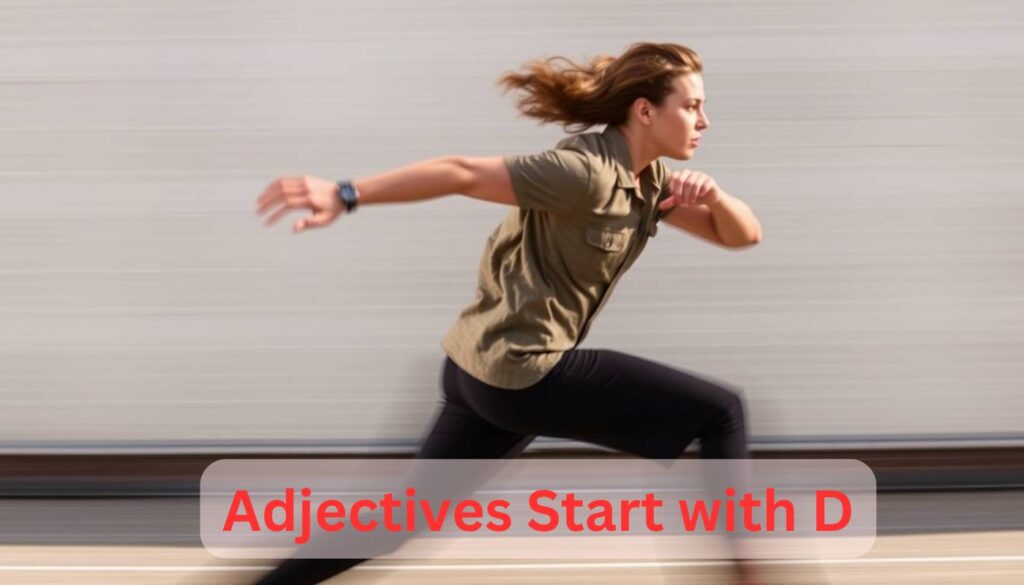
- Desolate – Empty, bleak, and devoid of life or activity.
- Dusty – Covered with or full of dust, often giving a sense of neglect or age.
- Darkened – Made darker, either by external factors or by the passing of time.
- Dank – Unpleasantly damp, often associated with musty or moldy environments.
- Dreary – Gloomy, dull, or lacking cheer, often used to describe weather or surroundings.
- Distant – Far away, either in physical distance or emotional connection.
- Desirable – Attractive, appealing, or worth striving for.
- Damp – Slightly wet or moist, often used to describe weather or conditions.
- Dim – Not brightly lit, often giving a soft, subdued effect.
- Dense – Thick, closely packed, or difficult to pass through, often describing a forest or fog.
Real-World Example:
A place with poor lighting and a somber atmosphere can be described as “dreary,” while an old, abandoned building with a musty smell might be labeled “dank.”
Describing Situations or Ideas
Describing ideas and situations is crucial, especially when conveying complex thoughts. Use these adjectives to express the subtleties and nuances of abstract concepts.
- Dubious – Uncertain or suspicious, causing doubt or hesitation.
- Deficient – Lacking in quality, quantity, or ability.
- Dissonant – Not in harmony, often referring to sounds or ideas that clash.
- Distorted – Changed or altered, often leading to a misleading impression.
- Disjointed – Lacking coherence or logical flow, often used to describe speech or writing.
- Dismal – Depressing, causing a sense of gloom or hopelessness.
- Delusional – Holding false beliefs, often out of touch with reality.
- Dominating – Controlling or having the most influence over a situation or group.
- Dogged – Persistent, showing determination and endurance despite difficulties.
- Dreadful – Extremely bad, causing fear or anxiety.
Real-World Example:
If a proposal lacks clarity and coherence, it might be described as “disjointed,” while a plan that causes anxiety and worry could be labeled as “dreadful.”
Describing Objects and Things
Objects and things, whether physical or abstract, can also be described with vivid adjectives. Here are some “D” adjectives to help you describe them.
- Durable – Able to withstand wear, pressure, or damage.
- Delicate – Fragile, requiring careful handling or consideration.
- Decayed – Having deteriorated or broken down over time.
- Defective – Having a flaw or imperfection, not working as intended.
- Dazzling – Impressive in appearance or brilliance, often captivating attention.
- Distinguished – Recognized for excellence or achievements, standing out due to superior qualities.
- Dying – Fading, weakening, or nearing an end, often used to describe a process or condition.
- Divisive – Causing disagreement or division, often leading to conflict or separation.
- Diluted – Made weaker or less effective, often by the addition of water or another substance.
- Dense – Compact, thick, and difficult to pass through or understand.
Real-World Example:
An object that can last for years without breaking might be described as “durable,” while a rare, exquisite gemstone could be called “dazzling.”
Test Your Knowledge with Fun Quizzes
1. Which of the following adjectives describes a person who resists or challenges authority?
A) Dutiful
B) Defiant
C) Diligent
D) Deliberate
Answer: B) Defiant
A “defiant” person boldly resists authority.
2. What adjective would best describe an object that can withstand wear and tear?
A) Diminutive
B) Delicate
C) Durable
D) Dreadful
Answer: C) Durable
“Durable” refers to objects that are built to last and withstand damage.
3. Which adjective best describes a gloomy or depressing environment?
A) Dazzling
B) Dreary
C) Distinguished
D) Dashing
Answer: B) Dreary
A “dreary” environment is bleak, gloomy, or lacking cheer.
4. Which adjective describes a person who works hard with persistence and attention to detail?
A) Dogged
B) Discreet
C) Dull
D) Distorted
Answer: A) Dogged
A “dogged” person is persistent, determined, and continues despite challenges.
5. What adjective describes a place that is empty and devoid of life?
A) Desirable
B) Desolate
C) Dominant
D) Dazzling
Answer: B) Desolate
“Desolate” refers to a place that is bleak, abandoned, and empty of life.
6. Which adjective is used to describe someone who is tactful and shows respect in delicate matters?
A) Daring
B) Dogmatic
C) Deferential
D) Dashing
Answer: C) Deferential
A “deferential” person shows respect and yields to others’ opinions or wishes.
7. If someone is described as “dazzling,” how would you interpret that?
A) They are boring.
B) They are exceptionally beautiful or impressive.
C) They are rude.
D) They are weak and easily intimidated.
Answer: B) They are exceptionally beautiful or impressive.
“Dazzling” refers to something or someone that is extremely bright, beautiful, or impressive.
8. Which adjective refers to a person who is emotionally uninvolved or aloof?
A) Drowsy
B) Detached
C) Daring
D) Dominant
Answer: B) Detached
“Detached” describes someone emotionally removed or aloof from others.
9. Which adjective describes a situation where two ideas or sounds don’t harmonize well together?
A) Deficient
B) Dissonant
C) Dominating
D) Dubious
Answer: B) Dissonant
“Dissonant” refers to clashing sounds or ideas that lack harmony.
10. Which adjective best describes someone who is stylish and well-dressed?
A) Dismal
B) Dapper
C) Diminutive
D) Dull
Answer: B) Dapper
“Dapper” describes someone neat and stylish in appearance.
11. What adjective would you use to describe a situation that is unclear or lacking a logical structure?
A) Distorted
B) Deficient
C) Disjointed
D) Dashing
Answer: C) Disjointed
“Disjointed” refers to something lacking coherence, such as speech or writing that does not flow logically.
12. Which adjective is used to describe someone who feels hopeless or in low spirits?
A) Defiant
B) Despondent
C) Diminutive
D) Diligent
Answer: B) Despondent
“Despondent” describes a person who feels hopeless or deeply downcast.
13. Which adjective would you use to describe a person who is easy to influence or manipulate?
A) Daring
B) Diplomatic
C) Dominant
D) Deceptive
Answer: D) Deceptive
“Deceptive” describes something or someone meant to mislead or manipulate.
14. If a place is described as “dank,” what does that mean?
A) It is luxurious.
B) It is damp and musty.
C) It is well-lit.
D) It is pleasant and comfortable.
Answer: B) It is damp and musty.
“Dank” refers to places that are damp, often with a musty smell.
15. What adjective best describes an environment that is oppressive or overwhelming, causing confusion?
A) Dapper
B) Dizzying
C) Dull
D) Dramatic
Answer: B) Dizzying
“Dizzying” describes something overwhelming or confusing, often causing a sensation of vertigo.
16. Which adjective is used to describe something that is delicate and fragile, requiring careful handling?
A) Durable
B) Defective
C) Delicate
D) Distorted
Answer: C) Delicate
“Delicate” refers to something fragile or requiring gentle handling.
17. What adjective would describe a person who is skeptical or uncertain about something?
A) Distressed
B) Dubious
C) Dashing
D) Daring
Answer: B) Dubious
“Dubious” describes someone who is doubtful or uncertain, often due to suspicion.
18. Which adjective would describe a small or weak object or person?
A) Dashing
B) Diminutive
C) Daring
D) Dominant
Answer: B) Diminutive
“Diminutive” refers to something small, often in size or stature.
19. What adjective describes a person who is constantly changing and energetic?
A) Dreary
B) Dynamic
C) Dilapidated
D) Dull
Answer: B) Dynamic
“Dynamic” refers to something or someone energetic, constantly changing, and lively.
20. What adjective describes a place or object that is marked with spots or patches of different colors?
A) Dappled
B) Dilapidated
C) Darkened
D) Dull
Answer: A) Dappled
“Dappled” refers to something marked with spots or patches, like sunlight filtering through leaves.
21. Which adjective describes something that has deteriorated over time?
A) Decayed
B) Dazed
C) Diminutive
D) Dazzling
Answer: A) Decayed
“Decayed” refers to something that has deteriorated or rotted due to time or neglect.
22. Which adjective refers to something that lacks coherence or logical sequence?
A) Diminutive
B) Disjointed
C) Dreadful
D) Dazzling
Answer: B) Disjointed
“Disjointed” describes something that lacks a logical flow or connection.
23. What adjective would describe a situation that causes disappointment or unhappiness?
A) Dashing
B) Dismaying
C) Diminutive
D) Daring
Answer: B) Dismaying
“Dismaying” refers to something that causes worry, disappointment, or discouragement.
24. Which adjective is used for a person who works with dedication and persistence?
A) Deficient
B) Diligent
C) Dogged
D) Dramatic
Answer: B) Diligent
“Diligent” refers to a person who is hardworking and focused on their tasks.
25. Which adjective would best describe a person who seeks to mislead others?
A) Deficient
B) Distorted
C) Deceptive
D) Dogged
Answer: C) Deceptive
“Deceptive” refers to actions or behavior meant to mislead or give a false impression.
26. Which of the following describes an event that causes fear or anxiety?
A) Dreadful
B) Daring
C) Dazzling
D) Diminutive
Answer: A) Dreadful
“Dreadful” describes something that causes fear, anxiety, or a sense of terror.
27. Which adjective describes something or someone that stands out due to superior qualities or achievements?
A) Defective
B) Distinguished
C) Dashing
D) Distorted
Answer: B) Distinguished
“Distinguished” refers to someone or something marked by excellence or achievement.
28. What adjective would describe someone who is uncertain about something?
A) Daring
B) Dubious
C) Dazzling
D) Diligent
Answer: B) Dubious
“Dubious” describes someone who is skeptical or unsure about something.
29. What adjective describes a person who is energetic and lively?
A) Dashing
B) Dramatic
C) Dazzling
D) Dynamic
Answer: D) Dynamic
“Dynamic” refers to a person who is full of energy and constantly changing or evolving.
30. Which adjective best describes something that is less effective due to dilution?
A) Deficient
B) Diminished
C) Diluted
D) Dazzling
Answer: C) Diluted
“Diluted” refers to something that has been weakened or made less potent by adding something else.
31. Which adjective best describes a situation where things are out of order or chaotic?
A) Dominant
B) Disruptive
C) Dreary
D) Diligent
Answer: B) Disruptive
“Disruptive” refers to actions that cause interruptions or disturbances in a process or system.
32. Which adjective is used to describe someone who is unwilling to accept criticism?
A) Defensive
B) Dogged
C) Dazzling
D) Diminutive
Answer: A) Defensive
“Defensive” refers to someone who reacts protectively, often to defend themselves from perceived attacks or criticism.
33. Which adjective describes a place or object that is marked by a lack of energy or excitement?
A) Diminutive
B) Dull
C) Delicate
D) Dynamic
Answer: B) Dull
“Dull” refers to something boring, lacking energy, or uninteresting.
34. What adjective describes a situation that lacks clarity or certainty?
A) Dashing
B) Dubious
C) Daring
D) Distinguished
Answer: B) Dubious
“Dubious” refers to something that is uncertain or questionable in nature.
35. Which adjective describes a person who shows great respect and submission to others?
A) Detached
B) Deferential
C) Daring
D) Dreadful
Answer: B) Deferential
“Deferential” describes a person who is respectful and yielding to others’ opinions or wishes.
36. Which adjective refers to a small or delicate person or object?
A) Dominant
B) Diminutive
C) Daring
D) Dreary
Answer: B) Diminutive
“Diminutive” describes something that is small or miniature.
37. Which adjective would describe a place or thing that is in a state of decay?
A) Dilapidated
B) Dismal
C) Dynamic
D) Dreary
Answer: A) Dilapidated
“Dilapidated” refers to something that is in a state of disrepair or deterioration.
38. Which adjective describes an event that is too overwhelming or confusing to process easily?
A) Dazzling
B) Daring
C) Dizzying
D) Dramatic
Answer: C) Dizzying
“Dizzying” describes something that causes confusion or disorientation.
39. Which adjective refers to a person who is eager to take risks or try new things?
A) Daring
B) Deceptive
C) Diligent
D) Distressed
Answer: A) Daring
“Daring” refers to a person who is willing to take bold risks or challenges.
40. What adjective describes something that is unpleasant or harsh to experience?
A) Dreadful
B) Dazzling
C) Dramatic
D) Diligent
Answer: A) Dreadful
“Dreadful” describes something that is extremely unpleasant or causes fear and anxiety.
Conclusion
Mastering these “D” adjectives is an excellent way to enrich your vocabulary and express yourself more clearly. Whether you are crafting an email, delivering a presentation, or just having a conversation, choosing the right adjectives can elevate your communication.
Start by incorporating these adjectives into your daily vocabulary. Describe people, objects, and situations with more precision, and notice how your language becomes more vivid and engaging.
The next time you need a word to describe a friend, a place, or a feeling, think about the power of adjectives. They’re small but mighty tools in your linguistic toolbox. As you explore more words and experiment with them, you’ll find that your language skills become sharper and more nuanced. Happy speaking and writing!


